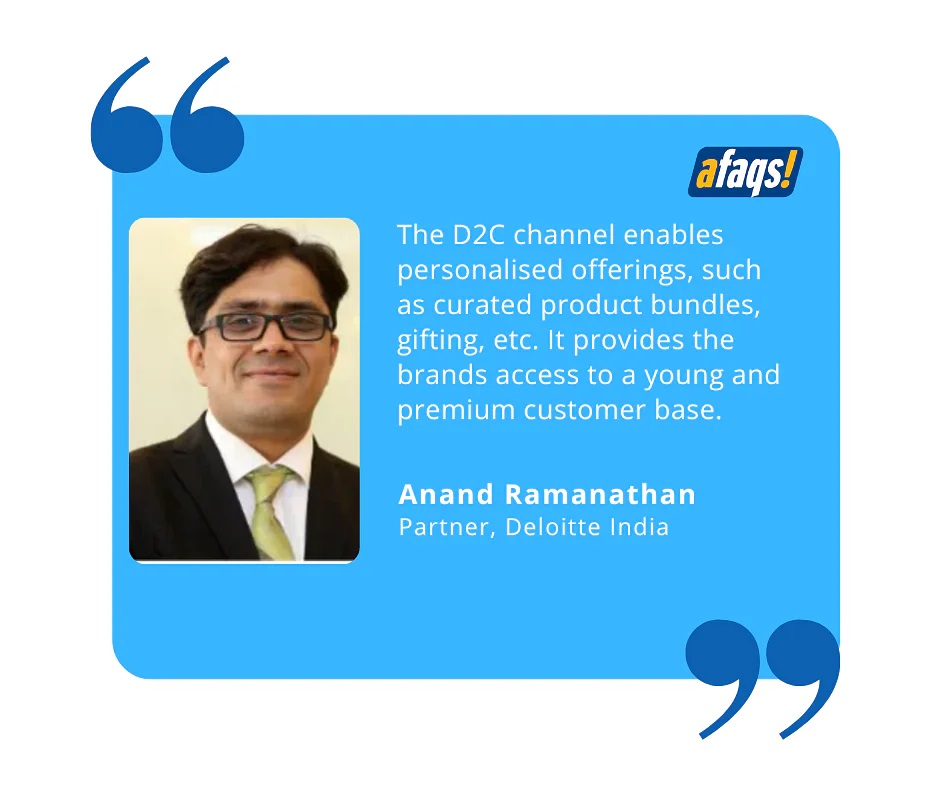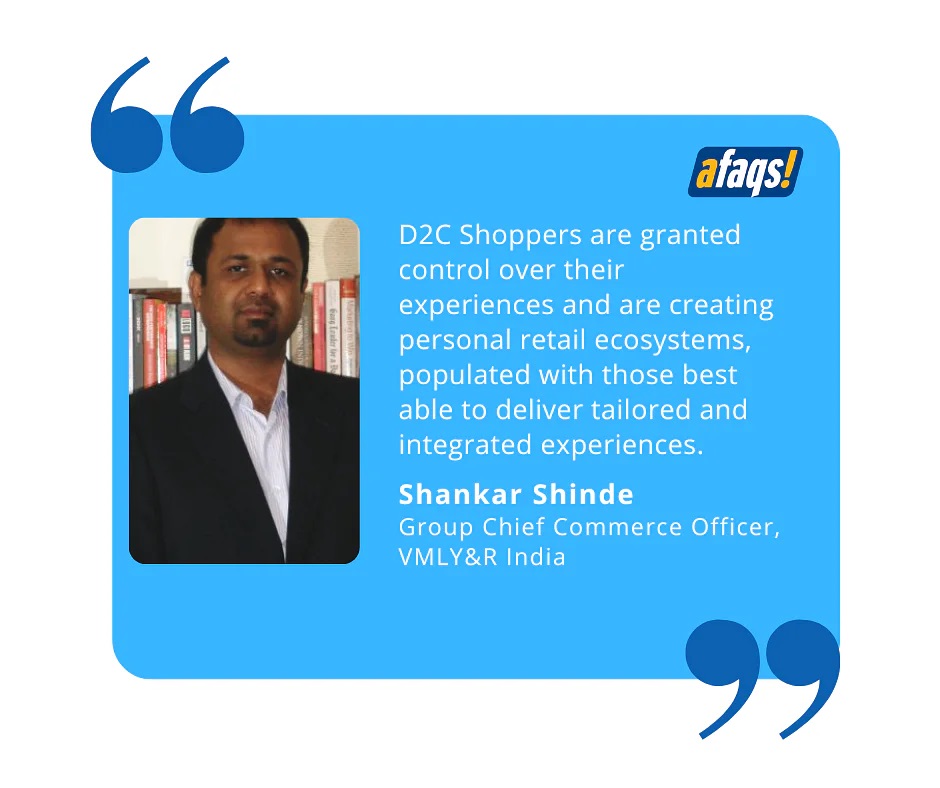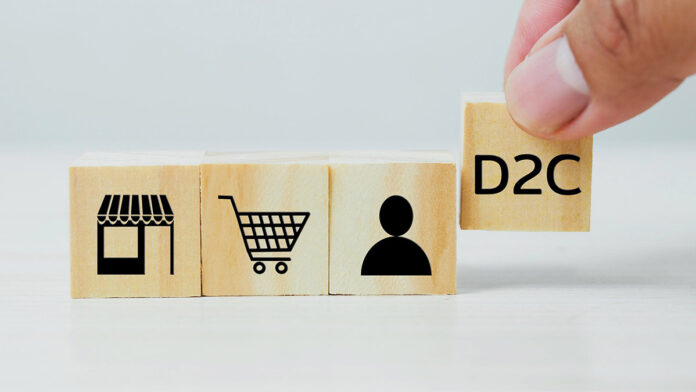With a slew of D2C brands across categories trying their luck in the Indian market, the big FMCG players have also realised the importance of reaching out to their consumers directly. The FMCG brands are now looking to widen their distribution mix.
Hindustan Unilever, ITC, Tata Consumer Products, Nestle and Colgate have all launched their D2C websites in the recent past. However, a few of these FMCG brands are still in their beta-testing phase. The main objective of a D2C website is to eliminate middlemen, directly reach consumers and build a relationship with them.

Talking about the advantages of having a D2C website, Anand Ramanathan, partner, Deloitte India, says that FMCG players have complete autonomy, in terms of building their brand and a community in the digital-first world.

“The CX (customer experience) can be built and influenced with a direct view into the customer journey, starting from research, discovery and purchase. The D2C channel enables personalised offerings, such as curated product bundles, gifting, etc. It provides the brands access to a young and premium customer base,” he adds.
As per Shankar Shinde, group chief commerce officer, VMLY&R India the current D2C boom is largely driven by tier-II, III and IV cities, where consumers are well-off but starved of brands and are willing to experiment with products.
Elaborating on the merit of having a D2C website, Shinde says, “Direct contact with shoppers through each stage of the buying process, including post-sales allows the collection of their email addresses, location, social media profiles, purchasing preferences, etc. Learning shopper buying behaviour helps brands optimise existing products and also create new product lines.”
The removal of all middlemen also enable the brand to earn higher margins. The D2C channel allows brands to sell products at the same price as retailers and hence positively impacting their bottom line.
In October 2022, Nestlé India joined the D2C market with the launch of its e-commerce platform MyNestlé. The platform will be first launched in Delhi-NCR and will later expand to other cities. It is created keeping the consumer needs in mind and will offer curated product bundles, personalised gifting, subscriptions and special discounts.
HUL hosts about eight direct-to-consumer (D2C) sites, which are across beauty and personal care. HUL’s brands in the D2C space include Dove Baby, Love Beauty and Planet, Simple, Dermalogica and Lakme.
Dabur’s D2C website ‘Dabur Shop’ is currently in its beta-testing stage. “We are currently working on progressively increasing its coverage across towns and intend to launch it by the end of the current fiscal,” Ankush Jain, chief financial officer, Dabur India, tells afaqs!

Dabur wants the consumers to have access to its entire product range through its D2C website. As per Jain, the D2C website will, over time, become the entire Dabur range’s one-stop shop. The brand also intends to use ‘Dabur Shop’ as a platform for special digitally curated or digital-first brands and products.
‘ITC Store’ provides ITC with a unique platform to showcase its customised products, like ‘Meri Chakki Atta’ or handcrafted chocolate range ‘Fabelle’.
“‘ITC Store’ is a treasure trove of information and insights, which helps the businesses understand consumer journeys and preferences. This helps the brand fine-tune some key decisions,” mentions Shuvadip Banerjee, chief digital marketing officer, ITC.

ITC also has multiple other D2C interventions, besides the ‘ITC Store’. It has stores specific to its range of products – for example, a separate store for its notebook brand ‘Classmate’ and skincare brand ‘Dermafique’. Banerjee informs that all the platforms are working with a partner ecosystem to manage its warehousing and last mile delivery.
Wipro Consumer Care & Lighting’s CMO and head of ecommerce business, S Prasanna Rai, says that as far as the FMCG segment goes, D2C will remain a niche space for a long time. The chunk of the business, especially in the highly penetrated categories, will come from the traditional medium of offline channels.
“D2C will be channel for these companies to introduce new premium brands to a niche audience with very niche positioning. These are the kind of opportunities that each of these companies would like to tap into,” Rai adds.
Why would consumers choose to buy from a particular brand’s D2C website, when they can choose to access a variety of products on an e-commerce marketplace or a quick commerce platform?
Shinde of VMLY&R India states that modern shoppers want to feel connected to brands and the lifestyles that these brands promote. “They are unbound by channel thinking and are focused on the experience, not simply the product. D2C shoppers are granted control over their experiences and are creating personal retail ecosystems, populated with those best able to deliver the tailored and integrated experiences.”

D2C brands are buying missions, not products. As the borders between beliefs and purchase behaviours are dissolving, successful D2C brands will re-think their products and services, mentions Shinde.
As per Ramanathan of Deloitte, consumers buy from D2C websites for the value-added services they provide, like free delivery, product recommendations, broader assortment and personalised services.
“It is the responsibility of the brand to build a hook for the customer to revisit the website. An interactive and engaging website that adds value to the customer journey and gives an authentic brand experience, will be able to attract consumer interest,” adds Ramanathan.
Banerjee of ITC says that quick commerce has created new expectations amongst the consumers. “However, given the objective of why ‘ITC Store’ exists, the need to ensure ‘quick’, as perceived by quick commerce delivery, is not one of its key priorities.”
A brand’s D2C platform provides its entire range of products, which otherwise may be difficult to find across marketplaces.
Banerjee mentions, “Customisation is one of the core motivations for todays’ consumer. These customised products can only be availed on the D2C website. While the role of an e-commerce marketplace will continue to be significant, D2C will also thrive. For the consumers, a D2C website is trustworthy, besides the fact that it sells fresh products.”


